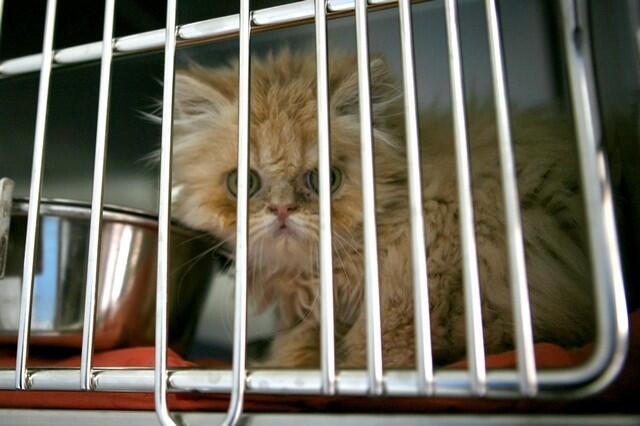Some animal breeders are posing as rescuers to get money from prospective buyers who believe they are doing a good deed. Animal welfare volunteer Katy Lefei said many breeders in the UAE were masquerading as rescuers when in fact they were charging for their supposed rescue animals.
She advised prospective pet buyers to do their homework.
“People wishing to adopt an animal must do some research on the rescuer and know who they are,” she said. “They must go and see where the animal has been kept and in what conditions. Is the person giving away the animal a hoarder, breeder, or a genuine rescuer?”
Most importantly, a cat or dog must be vaccinated, microchipped, health checked and de-wormed, “all of which breeders will not do”, Ms Lefei said.
Dubai resident Nehar Asmath said that she had recently dealt with a person whom she believed was a breeder posing as a rescuer.
“After we agreed that I would adopt a cat, the person said they would send the cat with a transporter. I would in turn have to give him Dh1,200,” she said.
“I immediately knew something was off as the ‘rescuer’ did not ask to meet me beforehand and did not give me an opportunity to meet the cat.
“I offered to go to them in Abu Dhabi but they kept insisting that an exchange be made for money with the transporter. This was a seller or breeder, not a rescuer.”
After refusing to follow through, Ms Asmath said that the person stopped responding to her messages.
Dr Hashim Al Awadhi, head of the veterinary section at Dubai Municipality, said selling animals without a licence was against the law.
“It is illegal for anyone to have a business trading pets from their home as they need to have a proper and licensed shop,” he said.
“People who breed animals in their homes and are selling them without a licence are ultimately breaking the law. All registered pet shops are monitored by Dubai Municipality and are routinely checked to make sure that the animals are treated well and are in good condition.”
He urged residents to cooperate with the municipality and report anyone they think is selling animals without a licence.
“We need the cooperation of the public to make sure this behaviour stops. People should not hesitate to call our 800 900 free hotline,” he said.
In Abu Dhabi, the number is 800 555.
One Dubai pet shop said that it does not sell animals bred in the UAE. Instead, its cats and dogs are imported from Europe.
The salesman said that customers sometimes came in and asked for specific breeds, but their requests could not always be met as it depended on what a supplier had.
Ms Lefei encouraged people to cooperate with the authorities to stop the increasing numbers of breeders in the UAE.
“Every three to five seconds, a cat and dog dies somewhere in the world because of overpopulation,” she said.
“Breeding of animals and bringing in more cats and dogs to an already overpopulated planet has nothing to do with the interest of the animal.
“They [breeders] do not care about the increase in [animal] abandonment rates and they do not care whether they end up in shelters.”
Buying bred cats and dogs, she said, only contributed to the growing problem.
Source: The National











